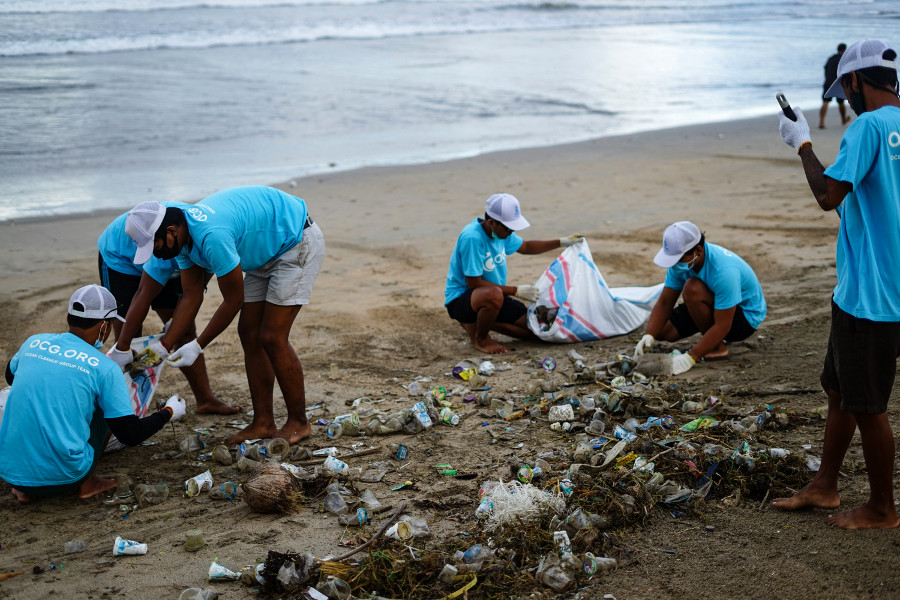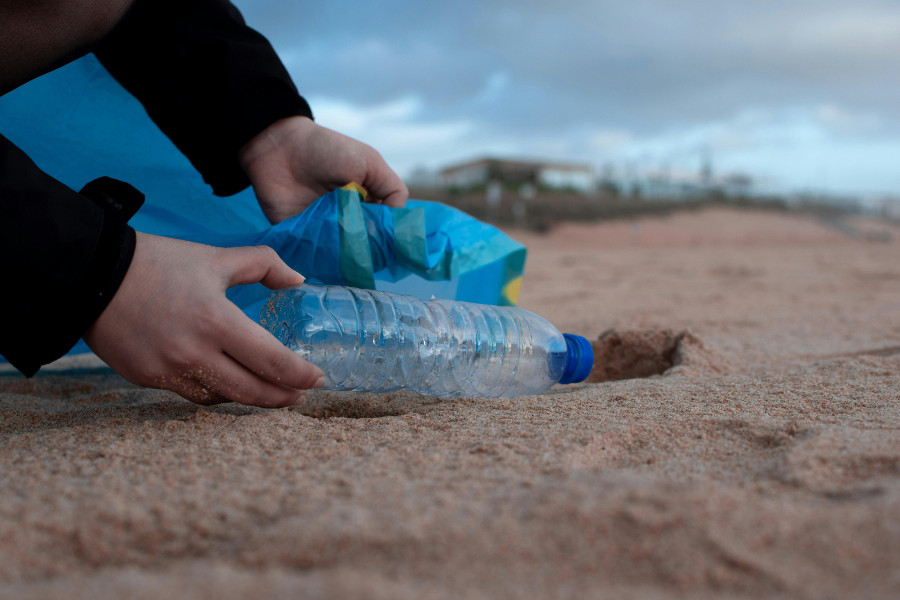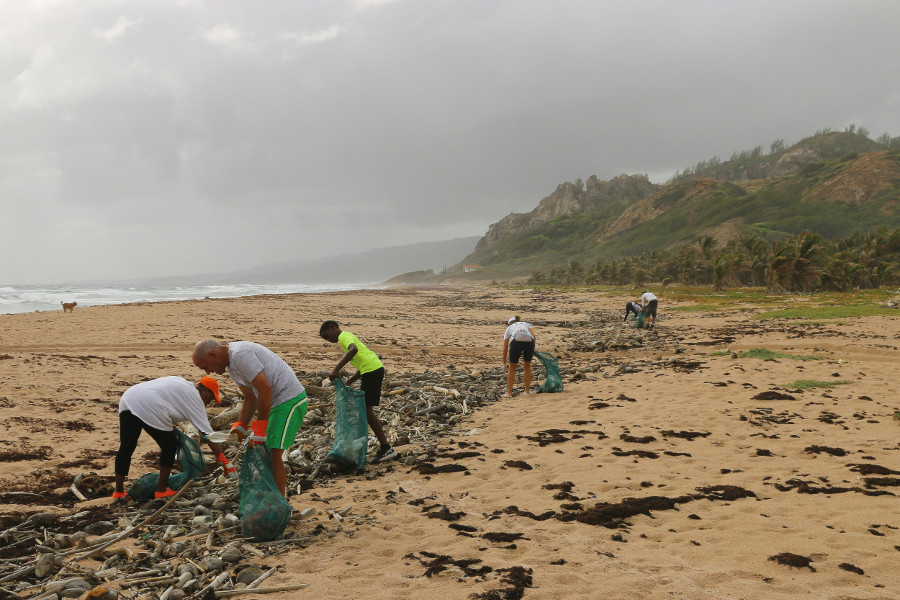Cleaner Beaches, Healthier Oceans: 10 Reasons and Benefits to Join a Beach Cleanup
Cleaning up a beach might sound like a simple act, but it’s actually a powerful way to connect with nature and make a real difference in the world around us. Our beaches, like forests or parks, are natural spaces where we can feel peaceful and grounded. Yet, too often, these places get overwhelmed by trash and pollution. Taking part in a beach cleanup isn’t just about picking up litter - it’s about helping nature heal and reminding ourselves of how important these environments are to our well-being.

We live in a world where plastic and waste are everywhere. They don’t just stay in one place; they travel from our streets to rivers, then to beaches, and finally into the ocean. This pollution affects animals, plants, and even people. But when communities come together to clean up their beaches, they create change that ripples far beyond the shore. So, what exactly happens when you help clean a beach? Let’s look at 10 benefits that might inspire you to join the next cleanup event near you.
1. Protecting Marine Wildlife
Trash on beaches isn’t just ugly - it’s dangerous for animals. Sea turtles can swallow plastic bags by mistake, mistaking them for food, and seabirds often get tangled in fishing lines and nets, which can cause injury or death. By clearing litter off the sand, we help keep these creatures safe, supporting biodiversity and the delicate balance of marine life. When marine animals are protected, entire ecosystems thrive, which benefits us all. Every piece of trash removed reduces the chances of harm and helps keep ocean habitats healthy.
2. Keeping Beaches Beautiful and Welcoming
There’s something magical about a clean beach - the feeling of soft sand, the sound of waves, and the fresh ocean breeze. But when litter covers the shore, that magic fades. Cleaner beaches attract more visitors, support local businesses, and encourage people to spend more time outdoors enjoying nature, strengthening community ties and pride. A beautiful beach is a place where memories are made and people feel more connected to their environment. Preserving this natural beauty ensures that future generations can enjoy the same joy and relaxation.
3. Stopping Pollution from Reaching the Ocean
Trash on the beach doesn’t just stay there - it often gets washed into the ocean, contributing to widespread marine pollution. Plastics and harmful chemicals can poison aquatic life and damage coral reefs. Picking up debris before it reaches the water helps maintain cleaner oceans, protecting ecosystems and improving the overall health of marine environments. Preventing pollution at the shoreline acts as a first line of defense against the larger global issue of ocean contamination. Every cleanup helps break the cycle of pollution and supports the ocean’s ability to regenerate.

4. Making Beaches Safer for Everyone
Broken glass, rusty metal, and sharp plastic fragments can turn a day at the beach into a painful experience. Removing these hazards protects families, children, and swimmers from injuries, making beaches safer and more inviting. Clean shores also reduce health risks by limiting exposure to bacteria and pollutants that can cling to trash. This is especially important for communities that rely on beaches for recreation and social activities. When safety improves, more people can comfortably enjoy coastal environments.
5. Bringing Communities Together and Raising Awareness
Beach cleanups are more than environmental work - they bring people together. Friends, families, and strangers unite with a common goal, creating a sense of community and shared responsibility. These events also raise awareness, helping volunteers understand the impact of pollution and inspiring long-term changes in how we treat the environment. The social bonds formed during cleanups encourage people to continue supporting sustainability efforts. Through these shared experiences, communities become stronger and more resilient.
6. Boosting Local Economies
A healthy beach supports tourism, fishing, and recreation - key economic drivers for many coastal communities. Polluted beaches can cause declines in visitors and damage livelihoods. By keeping shores clean, beach cleanups help sustain local businesses, save on public cleanup costs, and promote economic resilience by maintaining a healthy, attractive environment. Clean beaches also attract investment and encourage the development of eco-friendly tourism. In the long run, environmental stewardship leads to more stable and prosperous communities.
7. Encouraging Better Habits Around Waste
Seeing piles of collected trash firsthand can be a powerful motivator. Beach cleanups encourage people to reconsider their waste habits, reducing litter and promoting recycling. They create ripple effects in communities, helping to reduce single-use plastics and encouraging everyone to be more mindful about waste disposal and environmental impact. When people witness the consequences of careless littering, they often become advocates for change. This shift in attitude can inspire better policies and stronger environmental practices at all levels.

8. Protecting Fragile Ecosystems
Beaches border sensitive ecosystems such as dunes, mangroves, and coral reefs. Pollution in these areas can kill plants, suffocate animals, and disrupt the natural balance. By removing trash, cleanups give these ecosystems a chance to recover, helping preserve biodiversity, protect coastal buffers, and maintain important habitats that sustain many marine species. Healthy ecosystems also improve water quality and act as natural barriers against storms and erosion. Protecting these areas safeguards both nature and human communities along the coast.
9. Fighting Microplastics and Long-Term Damage
Microplastics are tiny particles formed when larger plastic trash breaks down over time. These particles contaminate the ocean, entering the food chain and causing harm to animals and humans alike. By removing trash early through cleanups, we prevent plastic from fragmenting into microplastics, helping reduce long-term environmental and health consequences. Microplastics are notoriously difficult to clean up once dispersed, so prevention is key. Beach cleanups provide a practical way to stop this pollution before it becomes a bigger problem.
10. Boosting Your Mood and Connection to Nature
Spending time outdoors in a clean, natural setting can lower stress and improve mood. Beach cleanups offer a chance to connect with nature while doing something meaningful. Volunteering fosters a sense of purpose and belonging, creating positive experiences that strengthen mental well-being and encourage a deeper appreciation for our planet. Being part of a community effort can also combat feelings of isolation and loneliness. This renewed bond with nature can inspire lifelong habits that benefit both people and the environment.
Places where you can find volunteering opportunities for beach cleanups
- Surfrider Foundation
- Ocean Initiatives - A Surfrider Foundation Europe Programme
- VolunteerCleanup.org
- Marine Conservation Society
Conclusion
Cleaning up a beach might seem like a small thing, but its impact is huge. From protecting animals and ecosystems to supporting local economies and improving our own well-being, the benefits are many. If you’ve ever wondered how you can help the planet in a simple but meaningful way, joining a beach cleanup is a perfect place to start. Together, small actions create big change - and that’s a future worth working for.



